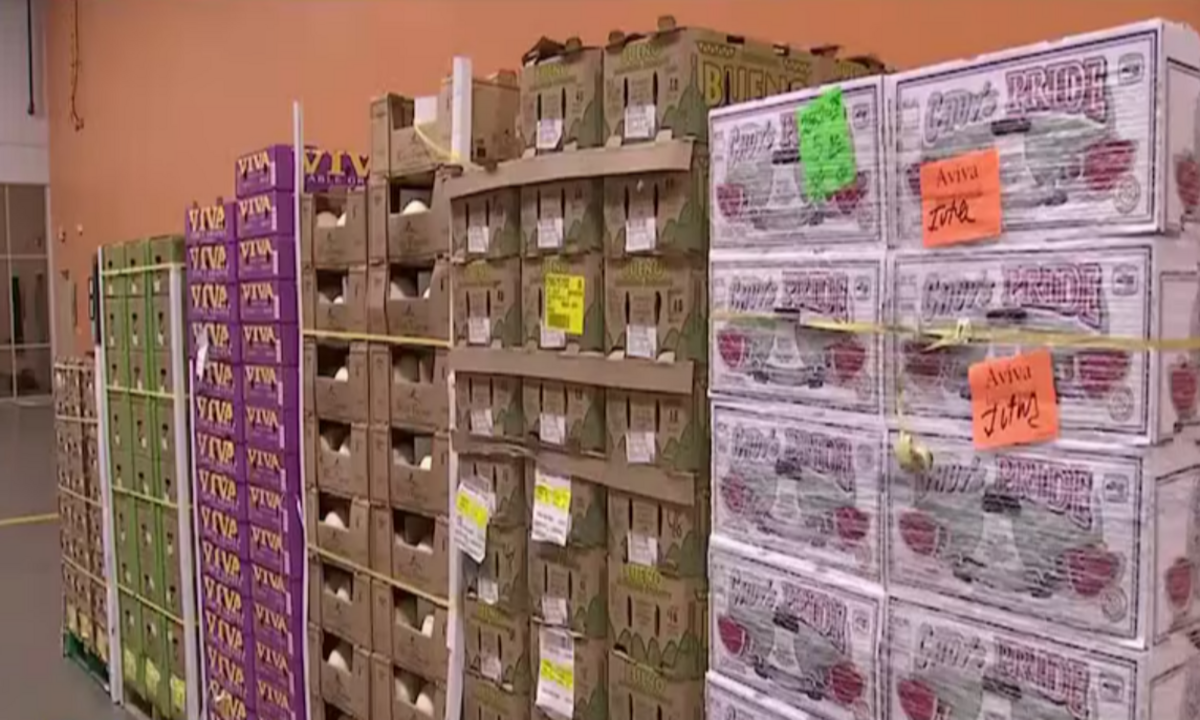The recent escalation in the ongoing trade wars between the Trump administration and the U.S.’s top trading partners, including Mexico, Canada, and China, is expected to have significant effects on Arizona families.
As new tariffs are being imposed, local consumers, particularly those who rely on goods imported from these countries, are bracing for the financial impact.The decision to place a 25% tariff on products from Mexico and Canada, along with a 10% tariff on Chinese goods, is sparking concern among many Arizona residents. In particular, grocery store prices are expected to rise, making everyday items more expensive.
The Impact of Tariffs on Consumers
A local mother in the Phoenix area expressed her worries about the increased grocery bills she expects to face in the coming weeks. “I’m not feeling good about those tariffs,” she said. “I’m preparing to feel the pinch on my grocery bills,” she added, noting that she’s certain the cost increase will be passed directly onto consumers.
According to Hitendra Chaturvedi, a Supply Chain Management professor at Arizona State University (ASU), this expectation is accurate. Chaturvedi explained that businesses will not absorb the cost of these tariffs themselves. Instead, they are likely to increase prices for consumers. “The companies are going to jack up the price, in some cases more than 25%. And these tariffs are going to be passed onto us,” Chaturvedi said.
He further elaborated that these increases could amount to an extra $800 to $1,000 in expenses per year for Arizona families. This would represent a significant financial burden for many households, especially those already struggling with the rising cost of living.
Why the Tariffs Are Imposed
The Trump administration imposed these tariffs as part of a strategy to force change on Mexico, Canada, and China regarding issues like illegal immigration and drug trafficking. President Trump has been vocal about his desire to reduce the flow of illegal immigrants and drugs across the U.S. borders, and these tariffs are part of his retaliation plan.
While this move aims to pressure other countries into complying with U.S. demands, Chaturvedi expressed his concern that this approach might not be the most effective solution. “I’m hoping we don’t use tit-for-tat tariffs as a way to solve that problem,” he said, warning that the broader consequences of such measures could negatively impact everyone involved, including U.S. citizens.
The “Double Whammy” of Tariffs
In addition to the direct effect on U.S. consumers, Chaturvedi pointed out that these tariffs could trigger a “double whammy” for the economy. As Canada and Mexico retaliate with their own tariffs on U.S. goods, American products will become more expensive, making it harder to sell U.S. exports abroad. This could harm small businesses and companies that rely on international trade to thrive.
“Our products become more expensive, and they are not able to sell,” Chaturvedi said. “Not only are our consumers and our small businesses going to be hit by higher prices, but they will not be able to export and sell the products that they’re looking for.”
The Long-Term Economic Impact
Experts, including Chaturvedi, are concerned that the continued imposition of tariffs over a 6-month to 1-year period could have a negative impact on the U.S. economy. These tariffs would likely hurt not just consumers but also industries that depend on cross-border trade and exports.
Chaturvedi hopes that the current tariffs are just a negotiation tactic and that both sides will eventually come to the table for discussions. “I hope it is just a negotiating tactic and that everybody comes to the negotiating table, and we talk about what can be done,” he said, suggesting that a more collaborative approach could lead to a better outcome for all parties involved.
For now, Arizona families are preparing for the immediate consequences of the tariff hikes. The effects are expected to be felt across a variety of sectors, from grocery prices to the costs of consumer goods and imports.
Public Opinion on the Tariffs
The reaction to the new tariffs is not one-sided. While many are concerned about the higher costs, others view the tariffs as a necessary step to address long-standing issues with trade. Two Arizona men, who spoke to Arizona Family but wished to remain anonymous, expressed their belief that the tariffs could lead to positive change in the U.S., especially if they result in more favorable trade terms and improved national security.
The debate over the tariffs continues, and the full extent of their impact on Arizona families and businesses remains uncertain. As the situation develops, it will be important to watch how long these tariffs last and whether they lead to lasting changes in U.S. trade policy and international relations.
Disclaimer—Our team has checked this article to ensure its accuracy and eliminate any misinformation. We are committed to providing clear and reliable information for our readers.


